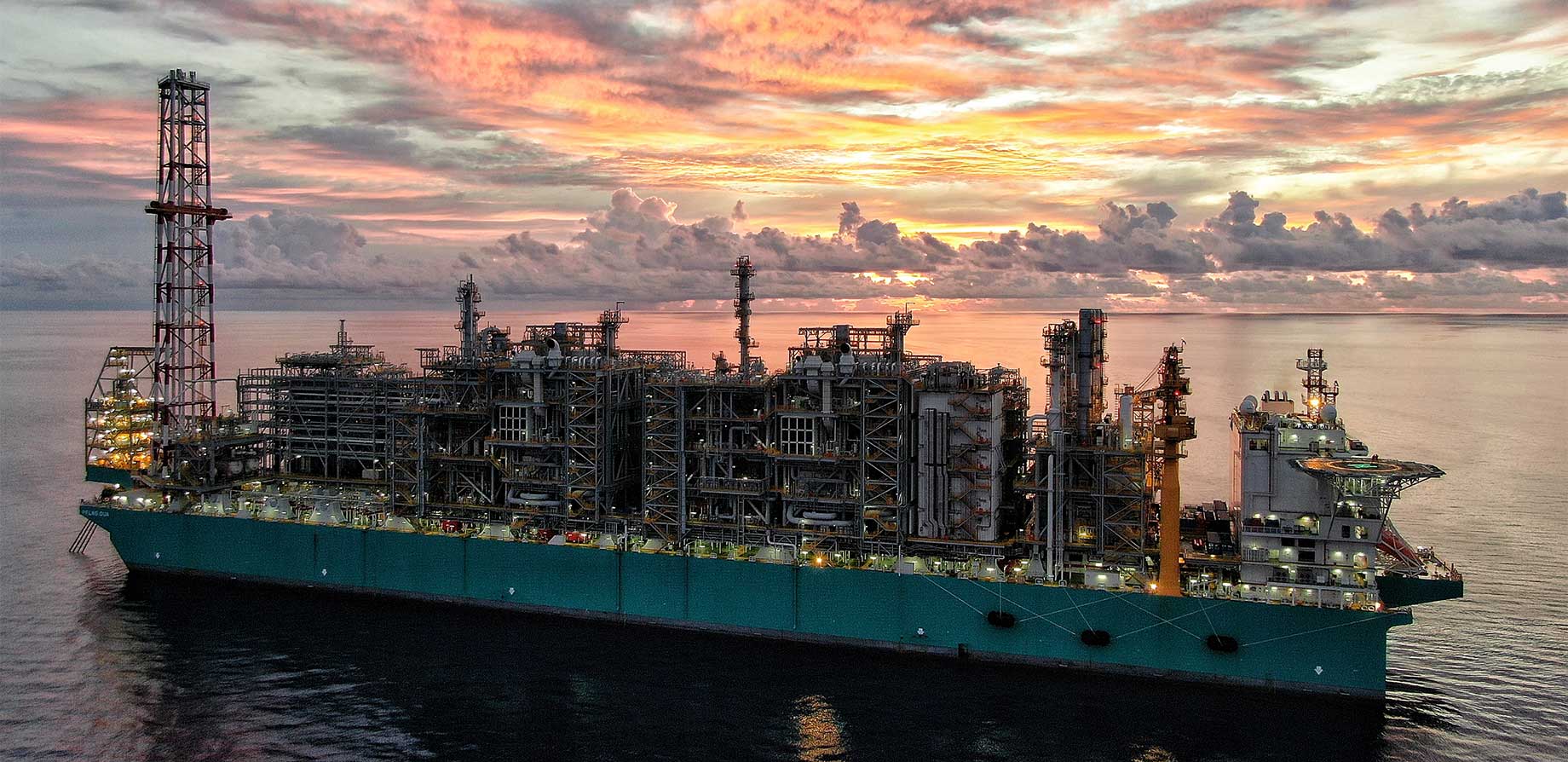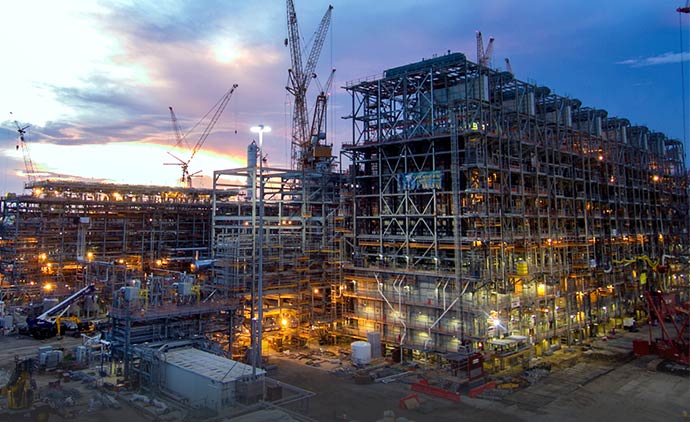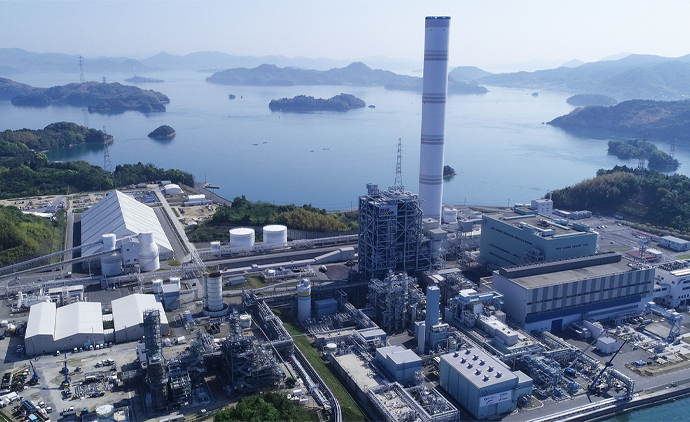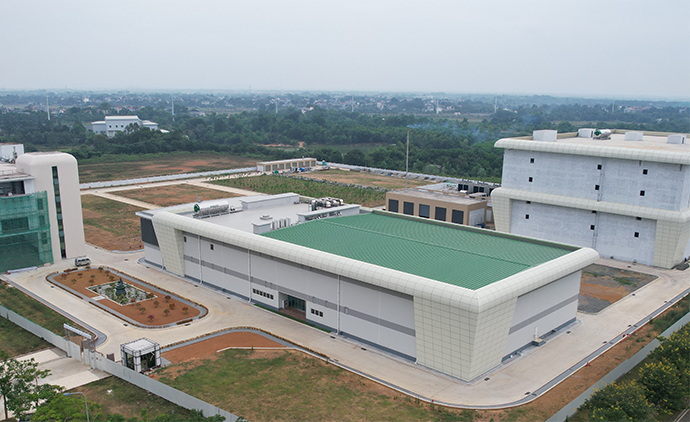

The Everlasting Challenge of Opening Up the Oceans
PFLNG2 Project - Malaysia
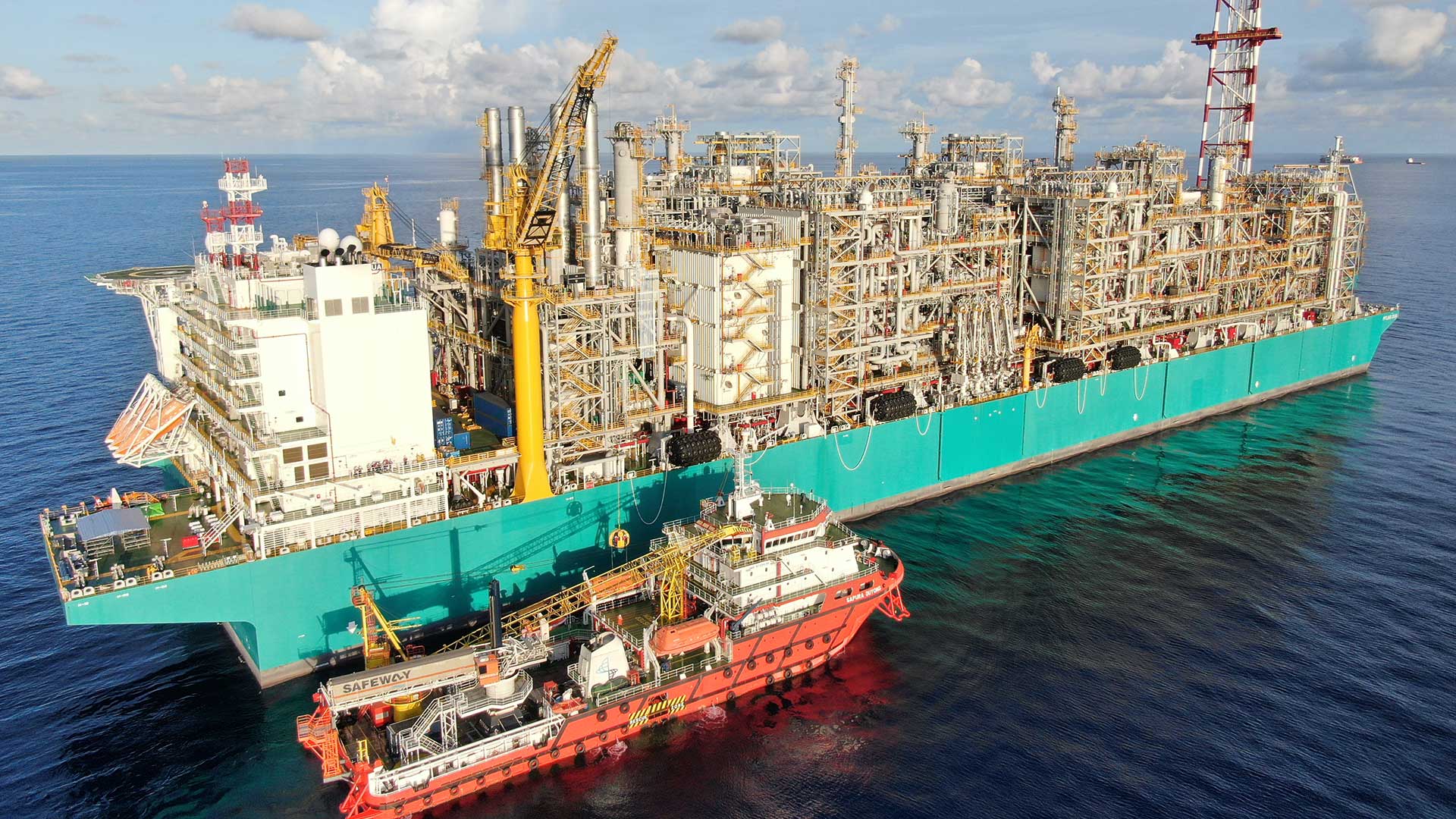
JGC's Contract for a Floating LNG Plant, the First for a Japanese Company
Among the gas fields distributed all over the world, many of them are small-to-medium size reserves, and mostly in the ocean. For the increase in energy demand mainly in emerging countries, development plans for small-to-medium scale offshore gas fields, which have not been developed or commercialized in the past from the viewpoint of economic efficiency, are now planning to progress by state-owned and major oil companies.
PETRONAS, the Malaysian state-owned oil company, was planning a project to construct the third floating LNG in the world to develop offshore gas fields in the state of Sabah.
JGC intended its positioning as a leading contractor for LNG projects, offshore as well as onshore, and formed a consortium with Samsung Heavy Industries Co. Ltd., South Korea's representative general heavy industries company, and raised their capabilities of floating LNG EPCIC to PETRONAS jointly.
PETRONAS comprehensively evaluated JGC's extensive experiences in onshore LNG EPC projects and Samsung Heavy Industries' advanced shipbuilding technology, and in February 2014, JGC succeeded in being awarded the contract for a floating LNG EPCIC project, the first for a Japanese company.
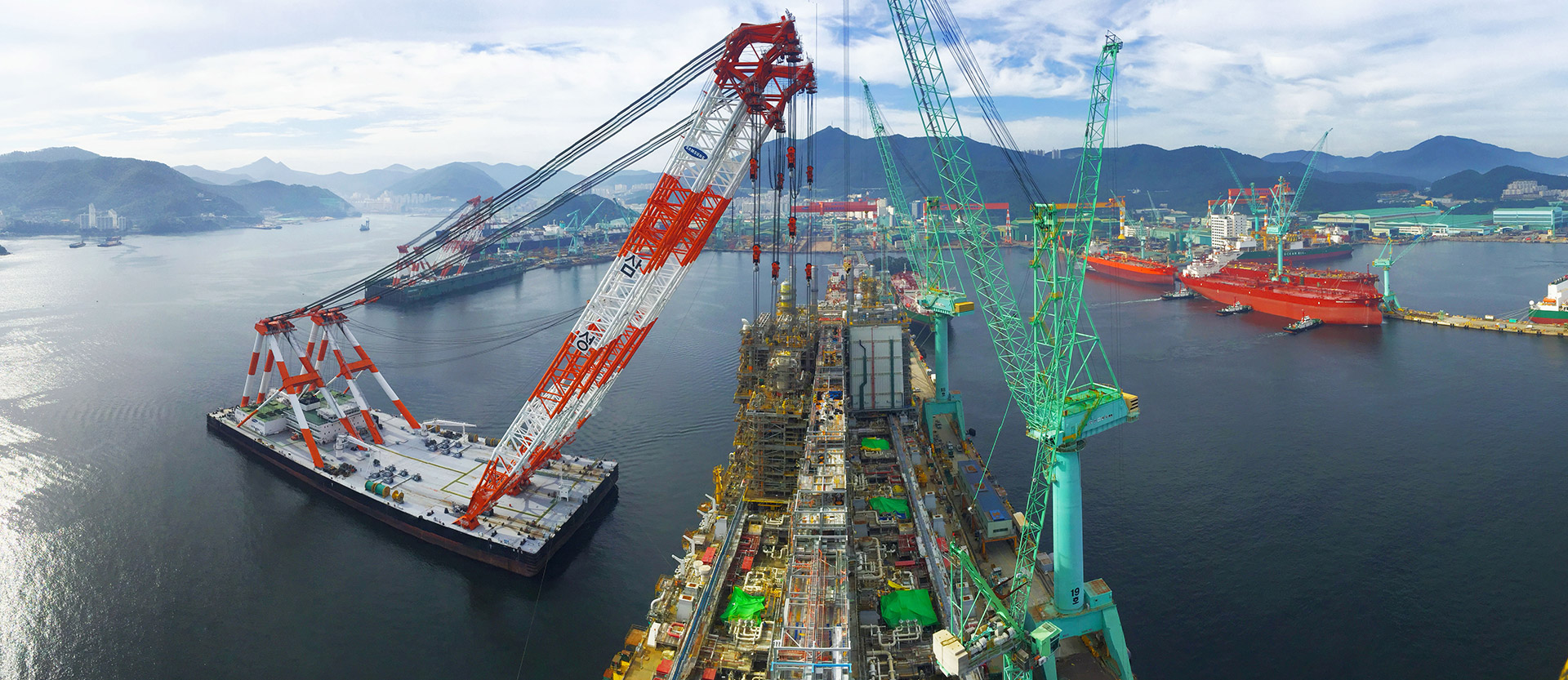
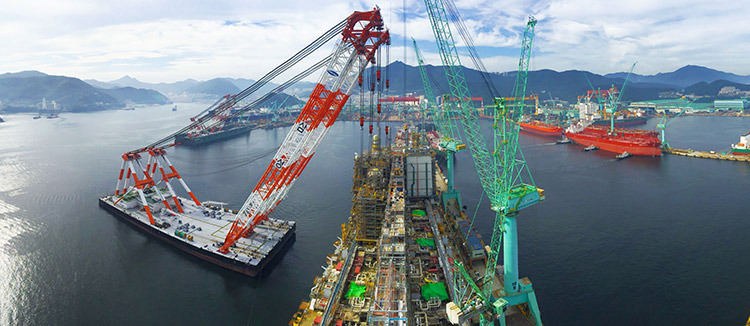
Opening the way to the Oceans
This project is a pioneering endeavor in the offshore oil and gas industry, aimed at constructing the world’s first floating LNG facility to develop deep-water gas fields at a depth of 1,000 meters. It presents an extremely high degree of technical difficulty.
To progress the module construction according to the EPCIC schedule, it was necessary to transfer technical information required for the construction, such as design drawings and engineering data, in a timely manner to Samsung Heavy Industries, which was in charge of the construction. Therefore, speed and quality in the transmission of such data were crucial to achieving success in the realization of floating LNG engineering.
JGC reviewed the design flow from scratch and developed a new design approach for the floating LNG, called "Plant Layout Oriented Engineering." This approach involves a one-team concept composed of multiple engineers from different disciplines, with the key idea being to share all discipline information concerning the plant layout in a timely manner. The information includes not only final discipline design/engineering results but also each discipline’s work status and potential design changes. This approach has worked effectively, resulting in the optimization of the design/engineering sequence and the completion of engineering about half a year faster than that achieved for onshore LNG EPC projects.
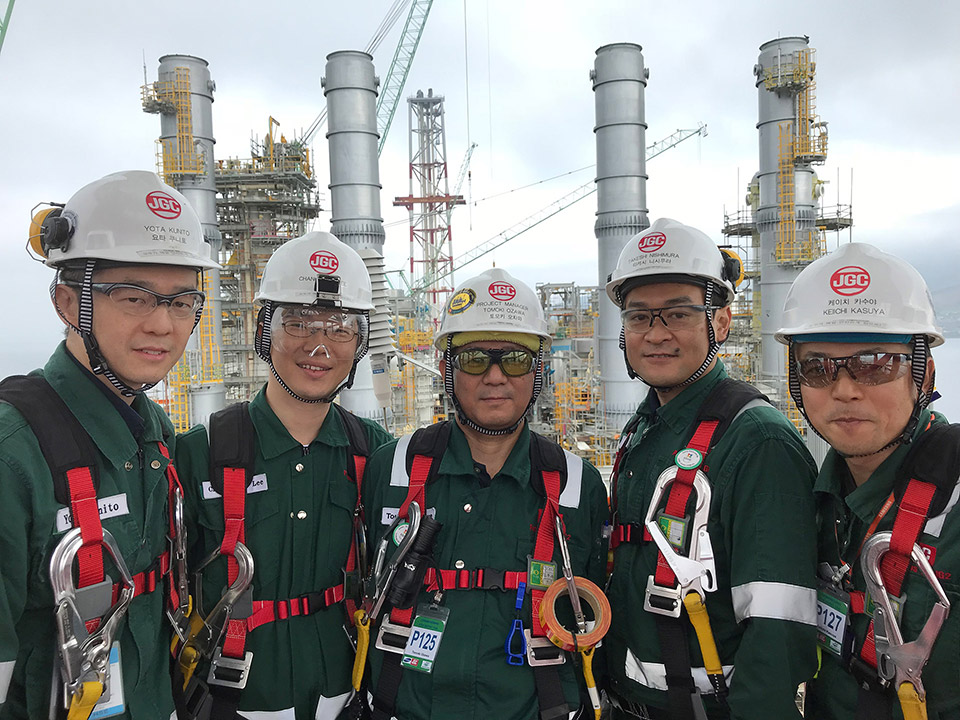
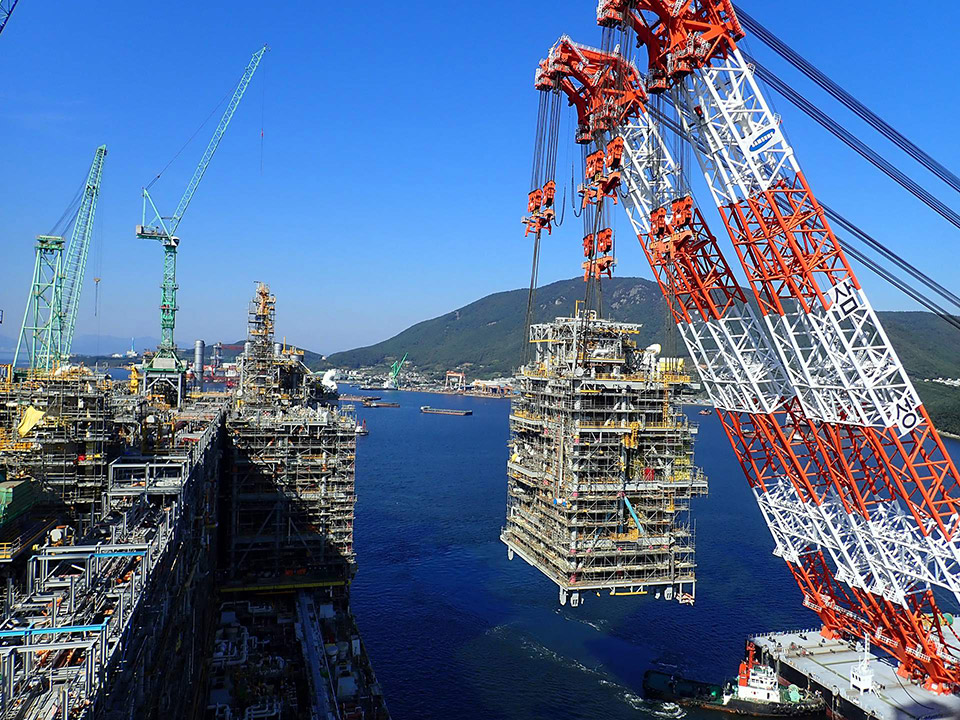
Leading Floating LNG EPC Projects
In February 2020, after overcoming many difficulties, an offshore LNG plant was completed at Samsung Heavy Industries’ shipyard in Korea. A grand launching ceremony was held with the President of Malaysia in attendance, and the floating LNG vessel finally set sail for Malaysia. While the ship was en route from Korea to Malaysia, the impact of COVID-19 was expanding worldwide, greatly restricting the international movement of people and materials. However, through the concerted efforts of a limited crew, they were finally able to produce and ship LNG in 2021.
This achievement was highly evaluated, and the JGC Group was awarded another contract by PETRONAS for a new offshore LNG plant, which is currently underway (as of August 2024). The JGC Group has also received an order for an offshore LNG plant in Mozambique, the first of its kind in Africa, which was completed in 2023, thereby solidifying its position as a top contractor in the offshore LNG field.
The challenges of the JGC Group in the ocean continue today.
